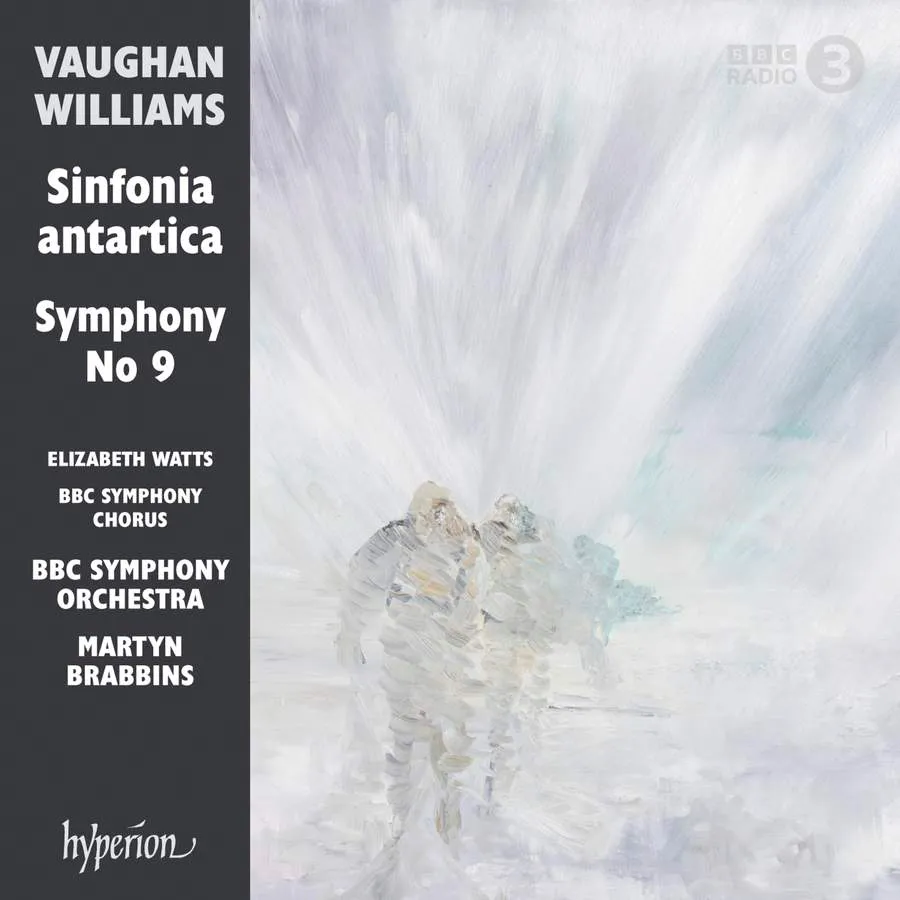
Vaughan Williams Sinfonia antartica (Symphony No. 7); Symphony No. 9 Elizabeth Watts (soprano); BBC Symphony Orchestra & Chorus/Martyn Brabbins Hyperion CDA68405 78:42 mins
Slowly but appreciably, perceptions of Vaughan Williams’s Seventh and Ninth symphonies have been changing. Well, an age that has no difficulty accepting the symphonic credentials of Mahler’s Third or Strauss’s Alpine Symphony has no credible excuse for ruling Sinfonia antartica out of court. There have been recordings, Haitink’s for instance, that have stressed the purposeful evolution that holds everything together, possibly at the expense of atmosphere and sound imagery. But Martyn Brabbins, fresh from the experience of conducting the film score that grew alongside this symphony, strives for a bold balance: cohesion, yes, but with each musical ‘scene’ given the time and loving attention it needs to open out like a cinematic vista. The result is music which, like the Mahler and the Strauss, creates vivid pictures but within the context of a compelling, ultimately moving macro-narrative. The superb recording helps, as do some wonderful solo performances, not least soprano Elizabeth Watts leading a truly chilling pack of ice‑sirens.
The Ninth, in its very different way, is just as magnificent, its soundworld sombre, moody and granitic as the Antartica is extreme in its dark-bright contrasts. What the two works have in common, Brabbins shows, is that sense of very slow background momentum, like the movement of giant ice sheets or tectonic plates. Then there are those saxophones: warmer and more teasing than the Antartica’s inhuman human voices, but voices all the same, which likewise seem to connect in some mysterious way with the essence of the landscape which, Vaughan Williams half-revealed, inspired the music. This could be just the recording both these symphonies need.
Stephen Johnson
